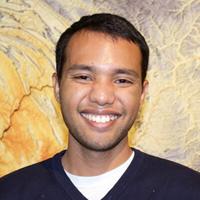As biotechnology continues to advance rapidly, it is vital for communities in Micronesia to understand not only the uses and applications of these technologies, but also their broader social, cultural, and legal implications. Innovations like CRISPR – Clustered Regularly Interspaced Short Palindromic Repeats, whole genome sequencing, and gene editing are increasingly influencing areas such as medicine, environmental conservation, ancestry, and forensics. Though these are relevant locally, many communities in our region remain underserved or have limited access to these technologies. It is therefore crucial to consider how these developments will affect us and to build local capacity to engage with them meaningfully.
Co-led by the University of Guam’s Margaret Perez Hattori-Uchima School of Health, College of Natural and Applied Sciences and by the University of Otago, the Summer Internship for Indigenous Peoples in Genomics – Micronesia (SING Micronesia) is a program designed to empower communities across Micronesia to participate in and shape the future of genomics. Taking place from August 5 to 9, this week-long internship introduces students to the foundations of genetic research, its real-world applications, and the ethical issues that accompany it – such as data sovereignty, informed consent, cultural sensitivity and the misuse of research. Participants receive hands-on laboratory experience, including DNA extraction and genome sequencing, while also engaging in lectures and community-based discussions.
SING Micronesia is part of the global SING Consortium, which supports Indigenous communities in developing leadership and expertise in genomics. With sites in the U.S., Canada, Aotearoa (New Zealand), Australia, Mexico, and now Micronesia, the consortium builds a growing network of Indigenous-led genomic education and high-level research.
What sets SING Micronesia apart is its focus on the social and ethical dimensions of science. In a region where research has too often been conducted without proper respect for local values or without returning benefits to the community – the program emphasizes local leadership and accountability. Participants not only gain technical skills but also learn how to advocate for ethical and culturally grounded science.
This year’s program will highlight the work of CHamoru and Micronesian researchers – some who are graduate students or alumni from the University of Guam who are leading important studies, such as investigating genetic contributors to diseases like gout. Their research aims to improve disease management and health care outcomes across our region by providing a clearer genetic context for conditions that disproportionately affect our communities including the development of different kinds of cancers, a growing concern among our communities.
Though still in its early years, SING Micronesia is quickly becoming a model for community-driven science in the region. It reflects a broader movement among Pacific Island nations to reclaim research sovereignty, cultivate local expertise, and ensure that science supports Indigenous futures.
We are proud to announce that on August 4th, we will welcome ten SING Micronesia scholars who have been selected from across Guam, CNMI, the Republic of Palau, the Federated States of Micronesia, and the Republic of the Marshall Islands. We invite the community to join us for the SING Micronesia Community Seminar which will showcase some of our home-grown researchers conducting high level genetic research on Friday, August 8th, 2025 at 4:00 PM, at the Margaret Perez Hattori-Uchima School of Health Building. This event is an opportunity to connect, learn, and support the next generation of home-grown scientists shaping the future of genomics in our region.
For more information about SING Micronesia, visit https://www.uog.edu/singmicro.
Tristan Paulino recently earned his Ph.D. in genetics from the University of Otago in New Zealand where he serves as an assistant research fellow. He is the head instructor for SING Micronesia at the University of Guam and a 2019 alumnus of UOG.
UOG Horizons: Knowledge for Life is a weekly column on agriculture, food, nutrition, health and wellness, and natural resources written by faculty from the University of Guam School of Health and from UOG’s Land Grant extension service and research center.
